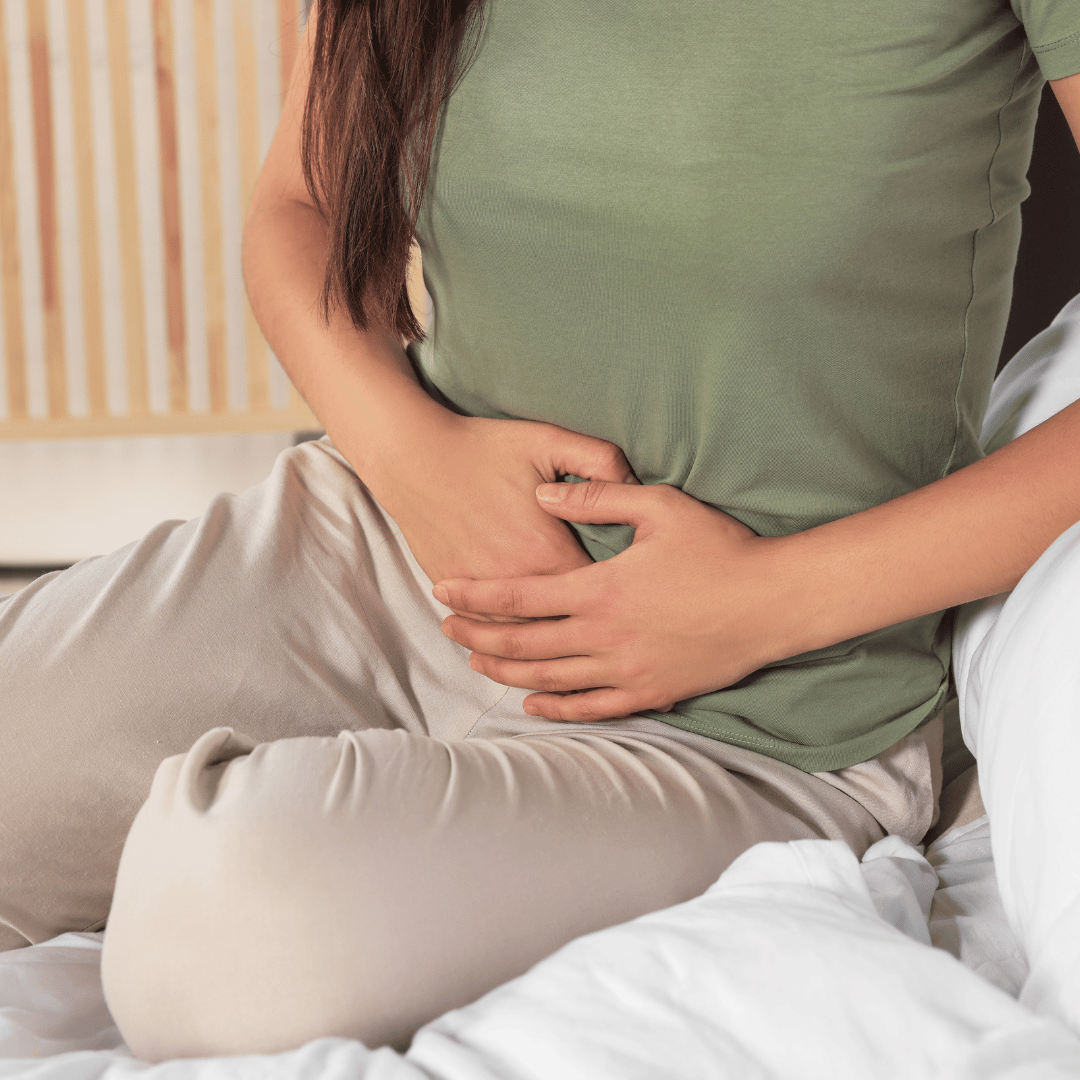Reading time: 5 minutes
What to do about a bladder infection? 15 tips
Today we have a new blog post about bladder infections, where we take an in-depth look at this common and often painful problem. A bladder infection can significantly disrupt your life, with symptoms such as painful urination, a constant urge to go to the toilet, and even a loss of energy and libido. Besides the physical aspects of bladder infections, we also want to explore their energetic significance. Our bladders symbolize our own boundaries and personal space. It's no coincidence that bladder infections often occur during periods of stress, when we feel unsafe or threatened. But what if we told you there are natural ways to address this challenge?
The energetic meaning of a bladder infection
Our bladder is more than just an organ that stores urine; it represents our boundaries, both physically and emotionally. When we feel overwhelmed, can't communicate our boundaries, or don't feel safe, this can manifest as a bladder infection. It's as if our bladder is trying to tell us to take better care of ourselves, respect our boundaries, and listen to our inner selves.
Rest and listen to your body
That's why listening to our bodies is so important. Give yourself time to urinate when you feel the urge and make sure you empty your bladder properly. A little wiggling on the toilet can help ensure that no bacteria remain that could cause an infection. Furthermore, avoiding scented soaps and maintaining healthy vaginal flora is essential for maintaining a healthy bladder, but more on that later.
Bladder infection caused by E. coli bacteria
E. coli is a type of bacteria that naturally occurs in the intestines of humans and animals. Generally, E. coli is harmless and even beneficial for digestion, but certain strains can cause problems if they spread outside the intestines, such as a bladder infection.
This can happen for several reasons:
- Poor hygiene: Wiping incorrectly (from back to front) can leave stool near your vagina, making it easier for bacteria to enter your bladder.
- Sex: Bacteria can be transmitted during sex, so for all women: really pee after sex!
- Incomplete urination: May leave bacteria in the bladder, which can lead to infection.
- Other: Changes in gut flora, a weakened immune system, or the use of certain contraceptive methods (lubricants, but also spermicides are chemicals used to kill sperm) can also increase the risk of bladder infections.
When E. coli bacteria enter the bladder, they can attach to the bladder wall and multiply, leading to inflammation. This causes typical symptoms of a bladder infection, such as:
- A burning sensation when urinating.
- Frequent urination (this is often a few drops or small amounts).
- Cloudy urine.
- A strong smell of urine.
- Sometimes even blood in the urine.
Natural treatment for bladder infection:
Most bladder infections are caused by E. coli bacteria, which travel from the intestines through the urethra into the bladder. In cases of E. coli-related bladder infections, D-mannose supplementation can be an effective natural solution. This supplement can work faster than cranberries and also reduces the risk of recurring bladder infections and the vicious cycle of: Bladder infection > antibiotics > bladder infection > antibiotics .
Supplementation advice: bladder infection
-
Acute: For acute situations, it is recommended to start immediately with a higher dose of D-Mannose . Take 6 capsules per day, divided over three intakes, which amounts to 1000 mg 3 times a day.
- After symptoms have subsided: When the worst symptoms begin to subside, the dosage can be adjusted. As symptoms subside, the dosage can be reduced to, for example, 1000 mg twice a day, which is equivalent to 2 capsules each time.
- Preventative maintenance: To maintain a healthy bladder and prevent recurrent bladder infections, a lower dose can be taken. It is recommended to take 500 mg once daily, which is equivalent to one capsule.
Important to know
The advice above isn't medical advice. Just a tip!
NOTE: If you feel anything coming on, REALLY start taking D-Mannose immediately and try it for a few days. If it doesn't improve, don't hesitate to go to your doctor and just take what they prescribe!
Why? If a bladder infection becomes more severe or persists, this could indicate an underlying cause such as a pyelonephritis.
A kidney infection can cause serious symptoms and should be taken seriously. Here are some signs to watch for:
- Fever.
- Feeling sick.
- Pain in the side.
- Nausea and vomiting.
- Painful or burning sensation when urinating.
If you suspect you have a pyelonephritis (kidney infection), it's important to seek immediate medical attention. A pyelonephritis can cause serious complications if not treated properly.
Want to know more about D-Mannose? We've dedicated an entire blog post to it. Read more about D-Mannose here , and here's another interesting scientific study: click here.
15 tips to prevent a bladder infection
Here is a summary of all the tips to prevent a bladder infection:
- Good hygiene: Maintain good hygiene, but avoid perfumed soaps which can disrupt the pH balance.
- Avoid cold: Keep your feet warm, especially in cold seasons, avoid drafts, as your bladder doesn't like the cold!
- Peeing: Don't ignore the urge to pee! Give yourself time for a bathroom break and make sure your bladder is completely empty by wiggling on the toilet. Yes, really, that helps!
- Water, water, and… more water: Drink plenty of water (at least 2 liters a day) to properly flush your urinary tract. Add some flavorings like mint or orange to make it more palatable.
- Herbal Tea: Nettle, bearberry, and chamomile tea are good options for a healthy bladder.
- Love your body: Build strong immunity by eating healthily, getting enough sleep, and reducing stress. Don't forget to give your immune system extra support during stressful periods.
- Contraception: Be aware of contraceptive methods that may increase the risk of bladder infections, such as spermicides, diaphragms, and cervical caps.
- Pregnancy awareness: During pregnancy, the changes in your body can increase your risk of a bladder infection. So pay extra attention to your bladder and take the time to urinate properly.
- Less sugar: Limit your intake of sugar and refined carbohydrates, as these foods can promote the growth of harmful bacteria and increase the risk of bladder infections.
- Supplement Support: Consider supplements like D-mannose, especially if you're prone to bladder infections. Start with a higher dose for acute symptoms and maintain a lower dose as a preventative measure.
- Include probiotic-rich foods like yogurt, kefir, sauerkraut, and kimchi in your diet. These promote healthy gut flora, which in turn can support bladder health.
- Still taking antibiotics? After a course of antibiotics or if you're at increased risk of bladder infections, give your gut flora some love with a good probiotic.
-
Make sure you get enough vitamins: especially #01 vitamin C , which increases the acidity of your urine and inhibits the growth of bacteria.
- Always urinate after sex to flush away any bacteria and reduce the risk of infection.
- Relax and set boundaries: Stress can have a significant impact on the development of bladder problems. Therefore, take regular time to relax and do what makes you happy.
-
Bladder Complex: Consider using supplements such as Goldea Health Bladder Complex to provide additional support and protection to your bladder.
With these tips, you can give your bladder the loving care and attention it deserves, and hopefully, that annoying bladder infection will stay away!
Summary
A bladder infection is more than just a physical discomfort; it can also be a sign of deeper issues such as stress and ignoring boundaries.
Fortunately, there are natural ways to prevent and treat it, such as good hygiene, drinking enough water, and avoiding colds. Herbal teas like nettle, bearberry, and chamomile can also help.
The D-Mannose supplement can be effective for acute bladder infections and prevention. It's important to listen to your body, reduce stress, and set boundaries to prevent and treat bladder problems.
Do you have any questions?
For further guidance and advice, we recommend contacting our orthomolecular therapist. You will receive free, tailored advice .
Visit our Instagram page for more inspiration. Discover healthy recipes and blogs. and a wealth of ideas to take your well-being to the next level. We're happy to share our knowledge and tips with you!
Sources:
- Jepson, RG, Williams, G., Craig, JC Cranberries for preventing urinary tract infections. Cochrane Database of Systematic Reviews, 2012.
- Kranjčec, B., Papeš, D., Altarac, S. D-Mannose powder for prophylaxis of recurrent urinary tract infections in women: a randomized clinical trial. World Journal of Urology, 2014.
- Beerepoot, MA, Ter Riet, G., Nys, S., et al. Cranberries vs antibiotics to prevent urinary tract infections: a randomized double-blind noninferiority trial in premenopausal women. Archives of Internal Medicine, 2011.
- Stapleton, AE Cranberry proanthocyanidins: natural weapons against uropathogenic Escherichia coli. Planta Medica, 2012.
- Czaja, CA, Stamm, WE, Stapleton, AE, et al. Prospective cohort study of microbial and inflammatory events immediately preceding Escherichia coli recurrent urinary tract infection in women. The Journal of Infectious Diseases, 2009.
- Wawrysiuk, S., Naber, K., Rechberger, T. Treatment of uncomplicated urinary tract infections: In relation to the new guidelines of the Infectious Diseases Society of America. International Journal of Antimicrobial Agents, 2011.

